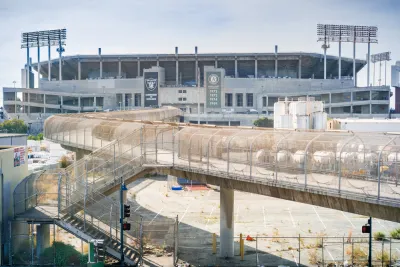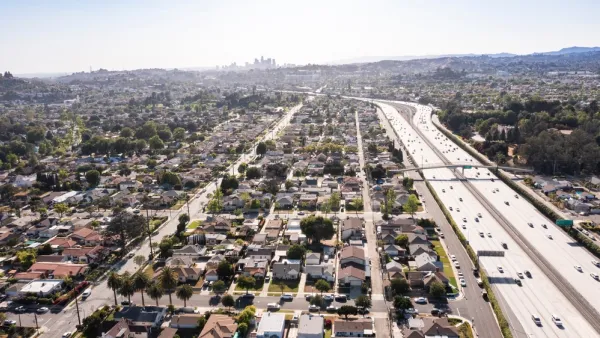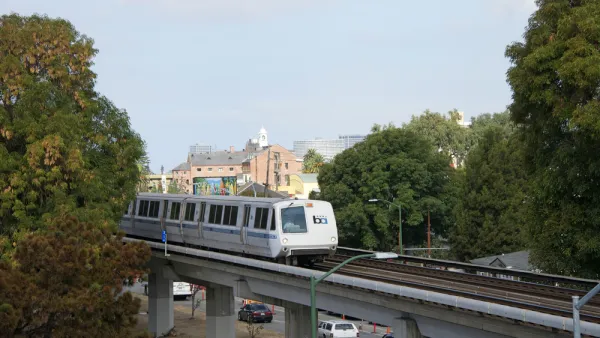One legislator believes CEQA "is a key barrier to California meeting its ambitious climate change goals.”

The idea behind a law proposed by a California assemblyman is to take majors obstacles out of the way of transportation projects that would reduce traffic congestion, and therefore reduce greenhouse gas emissions.
The issue is that the major obstacle in the way of these projects, according to the bill’s author, is the foundation of environmental protection in the state—the California Environmental Quality Act.
[Assemblyman Tim] Grayson says the law can grind to a halt transportation projects that are needed to reduce the amount of cars on the road. His legislation, Assembly Bill 1905, would make it easier for road or transit projects included in a state-approved regional growth plan to begin construction before any CEQA litigation is resolved.
A number of prominent environmental groups oppose the legislation, crediting "CEQA, which took effect in 1970, with preserving California's natural beauty, and argue it is complementary — not contrary — to the more recent climate change laws."
Environmental review in California is notoriously laborious, and this is not the first legislative effort to help projects move through CEQA more easily.
There have also been questions about how well CEQA serves its original purpose; one study found that "unions, business trade associations, rival local government agencies, and even the building industry all use CEQA to gain leverage over some local political process."
Opposition groups say the bill goes "too far."
“For instance, a judge might find that a transportation project's environmental review didn't account for all the effects the development could have on air quality, but under AB 1905 that judge couldn't stop the project because of it, said David Pettit, a senior attorney with the Natural Resources Defense Council. Without the threat of halting construction, agencies won't need to take seriously any subsequent demands to improve the air surrounding the project, he said.”

Analysis: Cybertruck Fatality Rate Far Exceeds That of Ford Pinto
The Tesla Cybertruck was recalled seven times last year.

National Parks Layoffs Will Cause Communities to Lose Billions
Thousands of essential park workers were laid off this week, just before the busy spring break season.

Retro-silient?: America’s First “Eco-burb,” The Woodlands Turns 50
A master-planned community north of Houston offers lessons on green infrastructure and resilient design, but falls short of its founder’s lofty affordability and walkability goals.

Test News Post 1
This is a summary

Analysis: Cybertruck Fatality Rate Far Exceeds That of Ford Pinto
The Tesla Cybertruck was recalled seven times last year.

Test News Headline 46
Test for the image on the front page.
Urban Design for Planners 1: Software Tools
This six-course series explores essential urban design concepts using open source software and equips planners with the tools they need to participate fully in the urban design process.
Planning for Universal Design
Learn the tools for implementing Universal Design in planning regulations.
EMC Planning Group, Inc.
Planetizen
Planetizen
Mpact (formerly Rail~Volution)
Great Falls Development Authority, Inc.
HUDs Office of Policy Development and Research
NYU Wagner Graduate School of Public Service




























